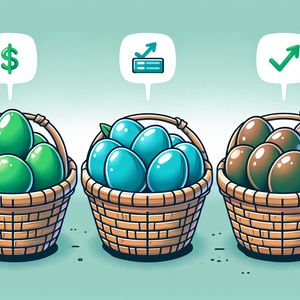From Love to Livelihood: Transitioning to Paid Caregiving

Transitioning from informal caregiving to a paid position requires a significant mental adjustment. Caregivers must recognize that their role is not just a labor of love but also a professional commitment. This shift involves understanding the importance of self-worth and valuing the time and effort dedicated to caregiving. Many caregivers struggle with feelings of guilt or apprehension about being compensated for their work, fearing it may change the nature of their relationship with the person they care for. However, it’s crucial to reframe this perspective: being paid for caregiving does not diminish the love and care provided. Instead, it acknowledges the hard work and sacrifices that caregivers make daily. For example, a daughter who has been caring for her elderly mother may feel conflicted about accepting payment for her time. However, recognizing that her efforts warrant compensation can help her understand that she deserves financial support for her dedication. This mental shift not only helps caregivers embrace their roles but also promotes a healthier dynamic in their relationships.
Necessary Training and Skills Development
As caregivers transition to paid positions, acquiring proper training and skills becomes essential. While many caregivers may possess innate skills and knowledge, formal training can enhance their capabilities and confidence. Various certifications and courses are available focusing on essential caregiving skills, such as first aid, medication management, personal care techniques, and even specialized training for specific conditions like dementia or Parkinson’s disease. Organizations like the Red Cross and local community colleges often offer relevant programs. Additionally, online platforms provide flexible learning options that can fit into busy schedules, allowing caregivers to balance their responsibilities while enhancing their skills. Beyond technical skills, caregivers should also focus on developing soft skills, such as communication, patience, and empathy. These interpersonal skills are vital for building rapport and trust with clients and their families, ensuring a positive caregiving experience. For instance, a caregiver who communicates effectively can better understand the needs of their client, leading to improved care and satisfaction for both parties.
Maintaining Family Relationships
One of the most delicate aspects of transitioning to paid caregiving is balancing professional responsibilities with family dynamics. Caregivers must navigate the complexities of maintaining personal relationships while fulfilling their new role. Open communication is key. Caregivers should have honest discussions with family members about the transition, setting clear boundaries regarding their professional obligations. Involving the family in this conversation can help them understand the caregiver's new responsibilities and the importance of their role. Family meetings can be an effective way to address these changes, allowing everyone involved to voice their concerns and expectations. It creates a platform for caregivers to explain their new responsibilities and how they can still be present in family dynamics despite their professional commitments. It’s also essential to establish boundaries regarding time and availability. Caregivers should communicate their work hours to family members and ensure that personal time is respected. This separation helps maintain healthy relationships while allowing caregivers to fulfill their professional duties effectively. For example, a caregiver might establish "off-duty" hours to ensure they have time for self-care and socialization, which is crucial for mental well-being.
Transitioning from love to livelihood as a paid caregiver is a journey filled with challenges and rewards. By embracing the necessary mindset shift, pursuing training opportunities, and maintaining open lines of communication with family members, caregivers can navigate this transition successfully. The journey not only validates the hard work of caregivers but also allows them to provide quality support while receiving the compensation they deserve. As more individuals recognize the value of caregiving, the transition to paid roles may become an increasingly common and respected path, enriching the lives of caregivers and those they care for alike. In light of resources available, such as state programs that compensate family caregivers, the potential for caregivers to turn their passion into a profession is more attainable than ever. By understanding their worth and developing the necessary skills, caregivers can transform their roles, benefiting both themselves and their loved ones.
Certified Nursing Assistant (CNA)
Hospitals, nursing homes, and home health agencies
Core Responsibilities
Provide basic patient care, including bathing, dressing, and feeding.
Assist nurses with medical procedures and monitor patient vital signs.
Maintain accurate patient records and report changes in patient condition.
Required Skills
CNA certification from an accredited program.
Strong communication and interpersonal skills.
Ability to handle physical demands of lifting and moving patients.
Geriatric Care Manager
Home care agencies, elder law firms, and non-profit organizations focused on aging
Core Responsibilities
Assess the needs of elderly clients and develop personalized care plans.
Coordinate services such as medical appointments, home care, and rehabilitation.
Advocate for clients and provide emotional support to families.
Required Skills
Background in social work, nursing, or gerontology.
Excellent organizational and problem-solving abilities.
Experience in navigating healthcare systems and community resources.
Home Health Aide
Home health agencies, assisted living facilities, and private care providers
Core Responsibilities
Assist clients with daily living activities, such as meal preparation and light housekeeping.
Support clients with medication management and basic healthcare tasks.
Provide companionship and emotional support to clients and their families.
Required Skills
Certification as a Home Health Aide (HHA) or completion of a relevant training program.
Compassionate nature and strong communication skills.
Ability to work independently and manage time effectively.
Palliative Care Specialist
Hospitals, hospice organizations, and outpatient palliative care clinics
Core Responsibilities
Coordinate comprehensive care for patients with serious illnesses, focusing on quality of life.
Work with interdisciplinary teams to manage pain and symptoms.
Provide emotional and psychological support for patients and families.
Required Skills
Medical degree with specialization in palliative care, oncology, or geriatrics.
Strong communication skills and ability to handle sensitive conversations.
Experience in patient advocacy and navigating complex healthcare decisions.
Personal Care Assistant (PCA)
Home care agencies, community service organizations, and private families
Core Responsibilities
Provide one-on-one support to clients in their homes or community settings.
Assist with personal hygiene, mobility, and daily living activities.
Help clients engage in social activities and maintain independence.
Required Skills
Certification or training in personal care assistance.
Patience, empathy, and a strong commitment to client well-being.
Experience with specific populations, such as disabled or elderly individuals.


